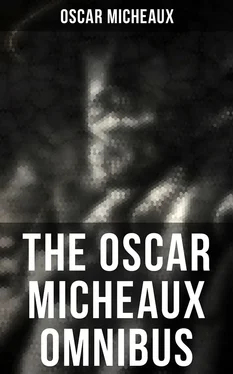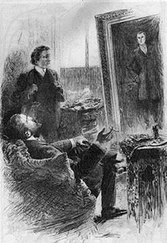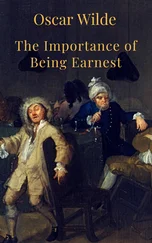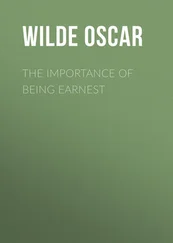My position was a trying one for the reason that all the relatives on both sides seemed to take it for granted that I should have plenty of money, and nothing I could say or do seemed to change matters. From his circuit the Reverend wrote glowing letters to his "daughter and son," of what all the people were saying. Everybody thought she had married so well; Mr. Devereaux, or Oscar, as they put it, was of good family, a successful young man, and was rich. I hadn't written to him and called him "dear father." Perhaps this is what I should have done. In a way it would have been easy enough to write, and since my marriage I had no letters to spend hours in writing. Perhaps I should have written to him, but when a man is in the position I faced, debts on one side and relatives on the other, I thought it would not do to write as I felt, and I could not write otherwise and play the hypocrite, as I had not liked him from the beginning, and now disliked him still more because I could find no way of letting him know how I felt. This was no doubt foolish, but it was the way I felt about it at the time. My father-in-law evidently thought me ungrateful, and wrote Orlean that I should write him or the folks at home occasionally, but I remained obdurate. I felt sure he expected me to feel flattered over the opinions of which he had written in regard to my being considered rich, but I did not want to be considered rich, for I was not. I had never been vain, and hating flattery, I wanted to tell her people the truth. I wanted them to understand, if they did not, what it took to make good in this western country, and that I had a load and wanted their encouragement and invited criticism, not empty praise and flattery.
Before I had any colored people to discourage me with their ignorance of business or what is required for success, I was stimulated to effort by the example of my white neighbors and friends who were doing what I admired, building an empire; and to me that was the big idea. Their parents before them knew something of business and this knowledge was a goodly heritage. If they could not help their children with money they at least gave their moral support and visited them and encouraged them with kind words of hope and cheer. The people in a new country live mostly on hopes for the first five or ten years. My parents and grandparents had been slaves, honest, but ignorant. My father could neither read nor write, had not succeeded in a large way, and had nothing to give me as a start, not even practical knowledge. My wife's parents were a little different, but it would have been better for me had her father been other than "the big preacher" as he was referred to, who in order to be at peace with, it was necessary to praise.
What I wanted in the circumstances I now faced was to be allowed to mould my wife into a practical woman who would be a help in the work we had before us, and some day, I assured her, we would be well to do, and then we could have the better things of life.
"How long?" She would ask, weeping. She was always crying and so many tears got on my nerves, especially when my creditors were pestering me with duns, and it is Hades to be dunned, especially when you have not been used to it.
"Oh!" I'd say. "Five or ten years."
And then she'd have another cry, and I would have to do a lot of petting and persuading to keep her from telling her mother. This all had a tendency to make me cross and I began to neglect kissing her as much as I had been doing, but she was good and had been a nice girl when I married her. She could only be made to stop crying when I would spend an hour or two petting and assuring her I still loved her, and this when I should have been in the fields. She would ask me a dozen times a day whether I still loved her, or was I growing tired of her so soon. She was a veritable clinging vine. This continued until we were both decidedly unhappy and then began ugly little quarrels, but when she would be away with my sister to her claim in Tipp county I would be so lonesome without her, simple as I thought she was, and days seemed like weeks.
One day she was late in bringing my dinner to the field where I was plowing, and we had a quarrel which made us both so miserable and unhappy that we were ashamed of ourselves. By some power for which we were neither responsible, our disagreements came to an end and we never quarreled again.
The first two weeks in June were hot and dry, and considerable damage was done to the crops in Tipp county and in Megory county also. The winds blew from the south and became so hot the young green plants began to fire, but a big rain on the twenty-fourth saved the crops in Megory county. About that time the Reverend wrote that he would come to see us after conference, which was then three months away.
One day we were going to town after our little quarrels were over, and I talked kindly with Orlean about her father and tried to overcome my dislike of him, for her sake. I had learned by that time just how she had been raised, and that was to to praise her father. She would say:
"You know, papa is such a big man," or "He is so great."
She had begun to call me her great and big husband, and I think that had been the cause of part of our quarrels for I had discouraged it. I had a horror of praise when I thought how silly her father was over it, and she had about ceased and now talked more sensibly, weighing matters and helping me a little mentally.
We talked of her father and his expected visit. She appeared so pleased over the prospect and said:
"Won't he make a hit up here? Won't these white people be foolish over his fine looks and that beautiful white hair?" And she raised her hands and drew them back as I had seen her do in stroking her father's hair.
I agreed with her that he would attract some attention and changed the subject. When we returned home she gave me the letter to read that she had written to him. She was obedient and did try so hard to please me, and when I read in the letter she had written that we had been to town and had talked about him all the way and were anxious for him to visit us; that we had agreed that he would make a great impression with the people out here, I wanted very much to tell her not to send that letter as it placed me in a false light, and would cause him to think the people were going to be crazy about him and his distinguished appearance; but she was watching me so closely that I could not be mean enough to speak my mind and did not offer my usual criticism.
A short time before her father arrived, a contest was filed against Orlean's claim on the ground that she had never established a residence. We had established residence, but by staying much of the time in Megory county had laid the claim liable to contest. The man who filed the contest was a banker in Amro, this bank being one of the few buildings left there. I knew we were in for a big expense and lots of trouble, which I had feared, and had been working early and late to get through my work in Megory county and get onto her claim permanently.
We did not receive the Reverend's letter stating when he would arrive so I was not at the train to meet him, but happened to be in town on horse back. In answer to my inquiries, a man who had come in on the train gave me a description of a colored man who had arrived on the same train, and I knew that my father-in-law was in town. I went to the hotel and found he had left his baggage but had gone to the restaurant, where I found him. He seemed pleased to be in Megory and after I explained that I had not received his letter, I went to look up a German neighbor who was in town in a buggy, thinking I would have the Reverend ride out with him. When we got ready to go the German was so drunk and noisy that the Reverend was frightened and remarked cautiously that he did not know whether he wanted to ride out with a drunken man or not. The German heard him and roared in a still louder tone:
Читать дальше












